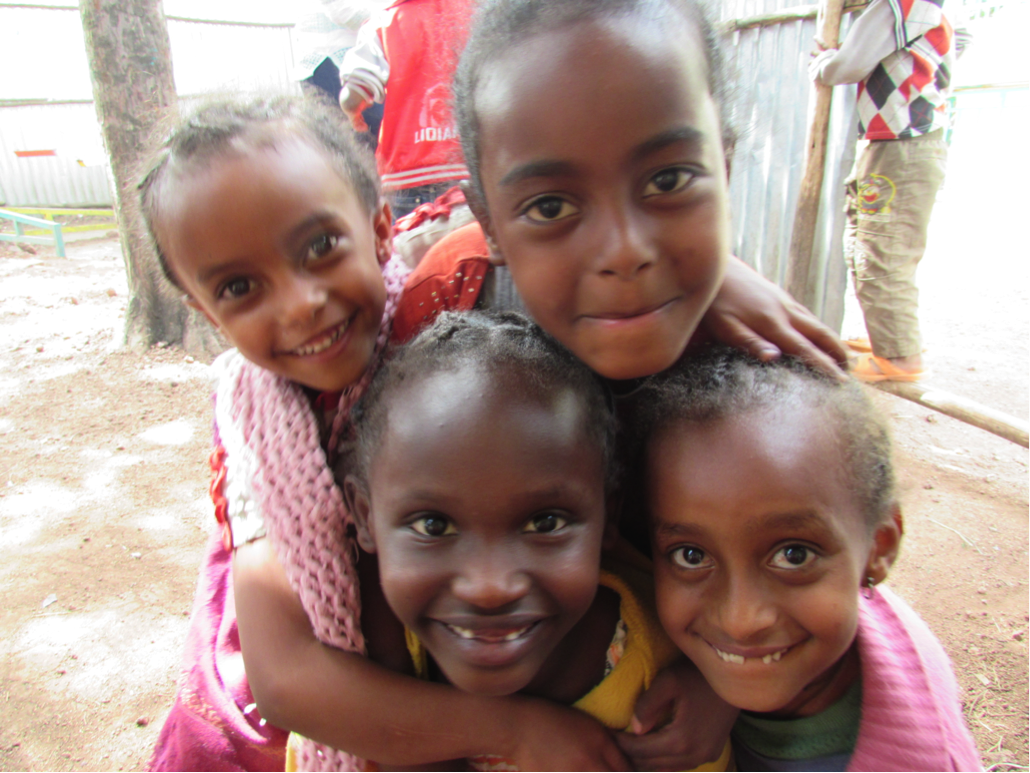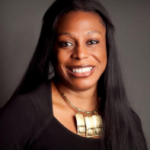Day of the African Child: A Q&A with Ayoade Olatunbosun-Alakija, Oando Foundation

Photo Courtesy of DFID.
Thirty-nine years ago, thousands of South African children marched down the streets of the Johannesburg township of Soweto protesting the apartheid regime. Under apartheid, nonwhite South Africans were forced to pay for schooling, given a small fraction of the resources, crammed into overcrowded classrooms and — the worst tool of oppression — forced to learn Afrikaans, the language of the white minority and the regime. Chanting “down with Afrikaans” and “viva Azania,” the kids diverted their path to Orlando High School where clouds of tear gas and showers of rocks rapidly evolved into sprays of bullets and blood.
Now remembered as Youth Day in South Africa and Day of the African Child globally, June 16 commemorates the Soweto victims and their refusal to abdicate their rights. This year, the theme of Day of the African Child is concentrated on the effort to end child marriage in Africa.
An average of 40,000 girls under the age of 18 become brides every day. For most, upon marriage, their educations are abruptly terminated and early pregnancy will soon follow. Child marriage is a harbinger for a lifetime of poverty and poor health. Girls with secondary schooling are up to six times less likely to marry prematurely and, if they have at least seven years of education, their children’s mortality rates will drop by 58 percent.
To learn more about how businesses can enter this dialogue, GBC-Education interviewed our member, Dr. Ayoade Olatunbosun-Alakija, of the Nigerian-based Oando Foundation. Dr. Olatunbosun-Alakija has a background in medicine and public health and has worked closely with the United Nations on reproductive and maternal health with the United Nations Population Fund and health and education with UNICEF. As the new director of the Oando Foundation, she hopes to expand the charity’s efforts to increase educational opportunity throughout Africa. To learn more about the Oando Foundation’s past efforts, read more here.
Q. You have recently joined the Oando Foundation. What are your key priorities to ensuring that all Nigerian children are in school and learning?
A. Nigeria has the greatest burden in terms of out-of-school children in the world with at least 10.5 million not in education. We’re hearing anecdotally that there are probably another 1-2 million out-of-school children as a result of the insurgency in the Northeast which puts the estimate closer to 13 million. So the problem is grave. For us, the priority is getting those kids into school and learning as quickly as possible. But, I also want to think creatively. I believe strongly that inadequate education is the HIV/AIDS of the current era. In the same way that 15-20 years ago HIV/AIDS commanded an international, multi-sectoral response to an international issue, we need to treat education with the same urgency. The same sort of directed response needs to be put towards education not just to make sure that children have a future, but that the nations of this world have a future.
In my new role as Director is Oando Foundation, I’m leading the transition from operating on a Corporate Social Responsibility footing to a robust developmental paradigm. It is vital that we make the linkages with the global development agenda if we want to harness the real potential of education to transform lives. We are adopting a more holistic, evidence-based approach looking at the whole child, not just the education, or the school, or education of the child in isolation.
Q. So what role can education play in that preventative space?
A. Well, education really, in our view, is the the key cause for tackling the causes of poverty and breaking the cycle of deprivation. We’re looking this week, for instance, at education as a protective factor against child marriage within our wider protective factors framework that our foundation is working within.
Q. That’s really interesting. Is that how Oando will be addressing Day of the African Child tomorrow?
A. Absolutely. We’re launching ‘Educate2Accelerate — Voices of the Nigerian Girl-Child’ with our team spending the entire week in the field using multimedia to capture the voices of hitherto unheard voices of the “Nigerian girl-child” as part of our wider advocacy strategy to ensure that their voices find expression amongst the decision makers of our time. It’s poignant that we’re harking back to Soweto tomorrow to start this campaign against child marriage. We’re also advocating with the business community and having their CEOs and their Chairmen speak out against child marriage.
Q. That sounds like campaign that will really gain traction. What can other businesses do to help prevent child marriage?
A. Private sector involvement is critical to the attainment of goals in a post-2015 era. Investing in access — not just access to education but access to quality education for all with a specific emphasis on the girl-child — businesses can support the development of protective factors such as life skills and negotiating power which mitigate against such things as child marriage and teen pregnancy, etc.
Q. Absolutely. You mentioned that your new approach at the Oando Foundation will involve a more evidence-based approach. Can you expand on that a little bit?
A. I had a meeting with a major major chairman of a big corporation yesterday who was just stunned when I presented the evidence and data — and I think data is the way to go. You know, Bono said something about factivism which I loved — that we’re not just activists, were ‘factivists.’ I think when we do [advocate], we have to make sure that we have our facts right going forward. So what can businesses do? We can put our money where our mouths are. But we can also advocate more widely. As you can probably tell, I’m an activist extraordinaire. I’m madly, wildly passionate about my causes. But this is beyond just “another cause.” W was an African girl-child and now I am the mother of an African girl-child. This is beyond a cause — it’s a life’s mission.
Q. Why should businesses invest in preventing child marriage through education? How might the growing rates of child marriage impact local businesses and the economy in Nigeria?
A. I think that’s an easy question really because if our children aren’t educated then our economy is stunted. You’re talking about psychological and physical effects, you’re talking about the longer term loss of income because women’s lives are essentially being truncated because culture is a dynamic thing.
Q. But how can businesses penetrate that culture?
A. We had this discussion even in the office today. We have to accept those who throw culture and tradition and religion at us, but work with them to bring about change nonetheless. Culture is a dynamic construct. You know, my daughter did a paper in high school once on something the Constitution. She said [resisting cultural change] would be like taking a lamb and putting it on the altar of the Calvary Chapel and slaughtering it on Sunday morning — because that’s what we did one hundred years ago. But now, we go to a Christian church and lift up our hands and sing instead. Times have changed. We have to move with those times.

